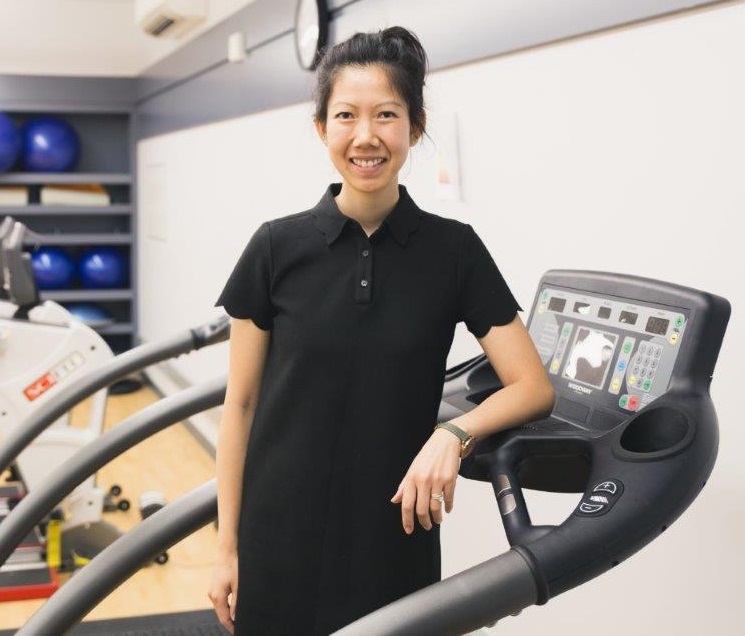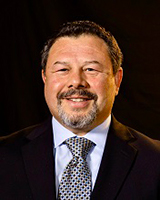
Spring 2024
Editor's Note

I’m excited to connect with all of you at the conference this week! In this issue, we have articles on getting the most out of conferences from seasoned conference attendees including presentation prep, networking, and energy management. Check out the Climate Change and Health corner on how you can be rewarded and help the environment at this year’s conference.
Eco-friendly Scientific Conferences

Climate change and health has been one of SBM's policy advocacy priority areas since spring 2022. SBM continues to take actions to limit our environmental impact specifically at our in-person events.
Conferencing 101: Gearing Up for SBM's Annual Meeting

Posters, podium presentations, research spotlights, oh my! The annual meeting is around the corner. Here are some tips and tricks from seasoned conference goers regarding presentation prep, networking, and energy management.
A Glimpse into the Future of Multiphase Optimization Strategy (MOST): A conversation with Dr. Jillian Strayhorn

The Multiphase Optimization Strategy (MOST) is an innovative multi-phase (preparation, optimization and evaluation) framework that uses highly efficient experiments to efficiently and systematically evaluate intervention components’, or component levels’, individual and combined effects.
National Data Related to Reproductive Health and Health Care – Where to Go When You Need Quick Statistics About the Health of Persons Who are or May Become Pregnant

The overturning of Roe v Wade via the 2022 Dobbs decision has triggered a wave of laws and proposed legislation limiting access to reproductive healthcare in many US states. It is now more important than ever to boost research, training, and advocacy related to women's health and reproductive health, at the individual, local, and national levels.
The Scientific Education Council is working to address your training needs!

The Scientific Education Council (SEC) is responsible for supporting members’ scientific pursuits via scientific education, trainings, and events, including the annual meeting. Our goal is to help advance members’ research and/or practice by sharing best practices and providing opportunities for scientific presentations.
A Call to Improve Upon the Health Disparities Affecting Native American and Alaskan Native Populations

Approximately 9.7 million people in the United States (3% of the total population) identified as American Indian or Alaskan Native (AI/AN) in 2020.1 There are over 550 federally recognized Indian tribes with many others not formally recognized.2 Though many from these groups have contributed to medical and healthcare advances, such as inventing baby bottles, syringes, and vaccines, these groups also experience numerous health disparities.3
Designing Behavioral Medicine Programs for Dissemination and Sustainable Practice

Designing research for dissemination begins at the conception of research design, which facilitates moving research upstream for broad implementation. This case study shares an exemplary research intervention, Let’s Eat Healthy (formerly Nutrition Pathfinders).
Student SIG Response to “Designing Behavioral Medicine Programs for Dissemination and Sustainable Practice: The Let’s Eat Healthy Programâ€

Behavioral medicine is an interdisciplinary field wherein students have highly diverse types of training and areas of expertise. Research skills are the foundation of many students’ training in behavioral medicine. These research competencies are indispensable, whether one is delving into the development of interventions or exploring the intricate biopsychosocial factors influencing health and health behaviors.
Including Industry Career Paths in Academic Training Programs

Trainees are highly interested in careers outside of academia, yet they often have difficulty exploring these careers through their academic training programs. In this article, we offer helpful suggestions for training programs to support students’ curiosity and introduce them to industry careers.
From Academia to Industry: Navigating the Role of Co-Founder and Chief Operating Officer (COO) in a Digital Health Startup

Growing up in the Silicon Valley, technology was always part of my life. During graduate school, I became increasingly interested in integrating behavioral science with technology to optimize health outcomes. This curiosity fueled my exploration of alternative career paths in industry.
Enhancing Diversity as a Tool for Increasing Research Impact in Biomedical Research

For decades, federal law and regulations have consistently promoted increasing diversity in the research workforce.1 For example, in 1980, Congress established an office within the National Science Foundation to increase the “participation of nationally underrepresented populations… in scientific, professional and technical careers and fields.”2
New Articles from Annals of Behavioral Medicine and Translational Behavioral Medicine
Awards, Honors and Inclusions
Classifieds
Visit the SBM Job Opportunities page for additional positions.
President's Message: Moving Upstream Kicking and Screaming or Leading the Way

SBM has come early this year! In just a few weeks we will convene in Philadelphia for the 45th SBM Annual Meeting & Scientific Sessions. As president this year, I couldn’t help reflecting on the organization’s past – for, as Maya Angelou is credited for saying, “if you don’t know where you’ve come from, you don’t know where you’re going.”
Upcoming Events:
45th Annual Meeting and Scientific Sessions
March 13 - 16 2024
Philadelphia, PA
